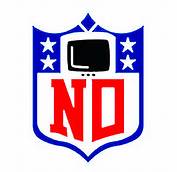 There’s an absolutely fascinating case before the Supreme Court and the oral arguments brought out the best in our nine Justices.
There’s an absolutely fascinating case before the Supreme Court and the oral arguments brought out the best in our nine Justices.
The question before the court is whether employees should be paid for the time it takes to change into and out of clothes required for their jobs. In this case it is steel workers and we’re talking about heavy-duty protective equipment.
The fact that the federal government has gone back and forth on this issue a number of times hasn’t helped solve the problem. Believe it or not, the big question is over the definition of clothes. According to the existing statute things that are clothes don’t count but protective gear does. In other words if you have to put on protective gear to do your job then you should be paid for the time it takes to put it on and take it off.
The company says any wearable item is clothes while the union disagrees.
Justice Kagan suggested that the entire thing was really just a statute interpretation issue that should be left to the agency involved and wondered why the court had to make a ruling at all. Justice Scalia quickly quipped; “Too complicated is why”, generating much laughter. It seems simple but Justice Scalia is correct, it is quite complex. Justice Kagan was right as well, it doesn’t really belong in the courts, but no one else can come up with a satisfactory resolution.
For some jobs it takes half-an-hour or more to suit up and I think most people would agree that you shouldn’t have to arrive at work thirty-minutes early, change clothes, perform your job for eight hours, and then spend thirty more minutes on your own time changing back to your clothes. You would be working for nine hours and being paid for eight.
The other side of the coin is putting on an apron and non-scuff shoes for the grocery store which takes a couple of minutes. Calling the apron and shoes protective gear would mean that every employee at the store gets paid for that time, every day. That adds up. Basically they would clock in before donning the apron and clock out after.
The court appears to be trying to find a long-term solution that answers questions broadly rather than giving a ruling for this single case.
The problem of course is defining protective gear. Technically an apron is protective although not in the same way as safety goggles or a fireproof vest. The employer is always going to call it clothes and the employee or their union protective gear.
The court is going to have to find a litmus test solution. Personally I think it’s a matter of time. If you can put on your work clothes in less than five minutes then I don’t think they really qualify as protective gear although certainly a pair of safety glasses and a fireproof vest can be slipped on in that amount of time.
If it was me, and I’m no lawyer, I’d put some sort of time limit on dressing, say ten minutes. Some average amount of changing time must be calculated for each job. So, you arrive at work, change clothes, and punch in. You then punch out and change back to street clothes. If is determined your job requires fourteen minutes donning/doffing time then four minutes are added to your time card each day you work.
It’s certainly not a perfect solution but it’s a complex problem. And remember, it’s not just me that thinks so!
Do you have a better solution?
Tom Liberman
Sword and Sorcery fantasy with a Libertarian Ideology
Current Release: The Spear of the Hunt
Next Release: The Broken Throne



